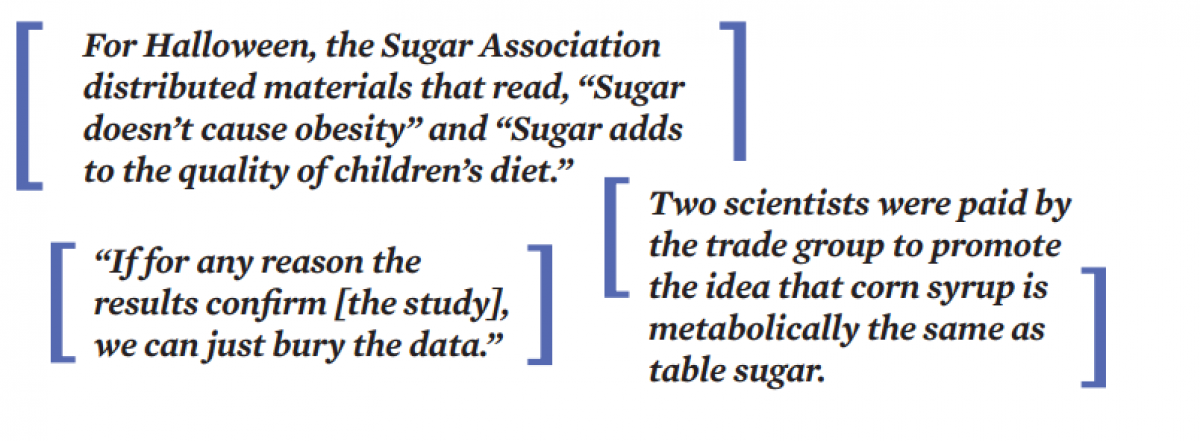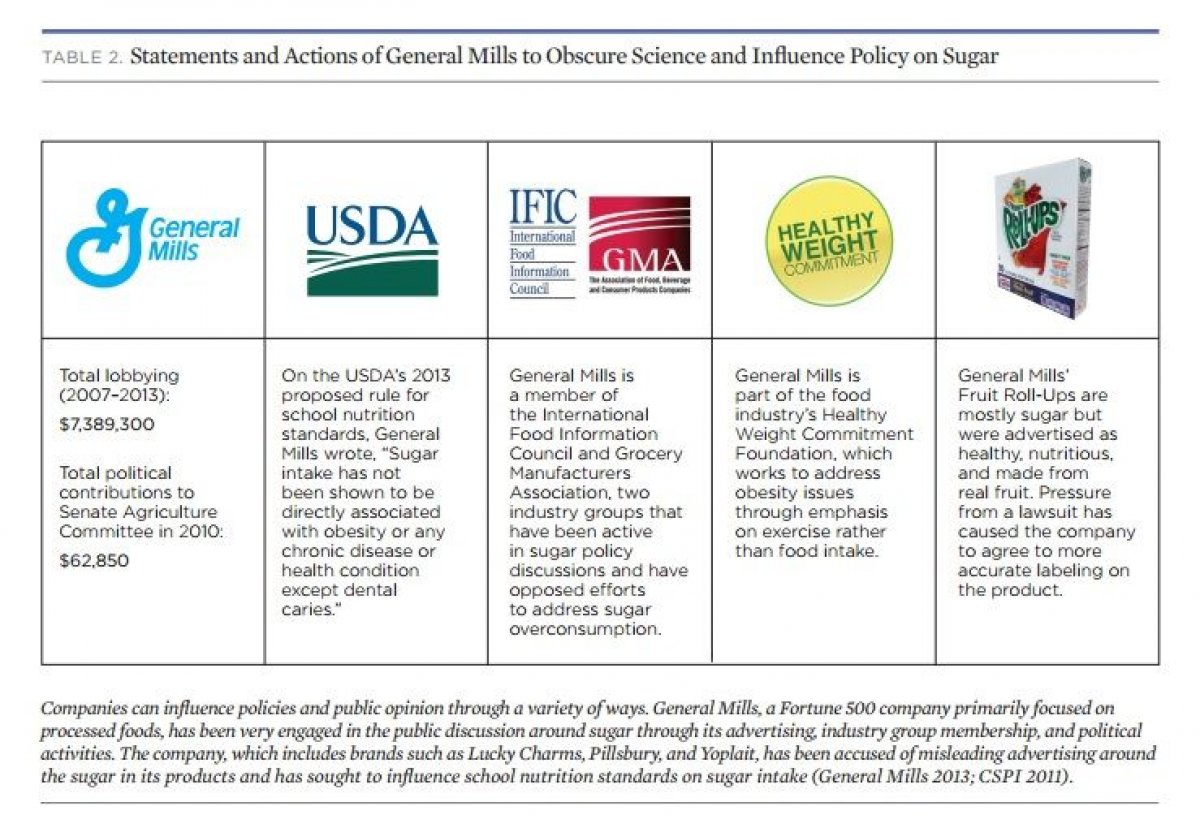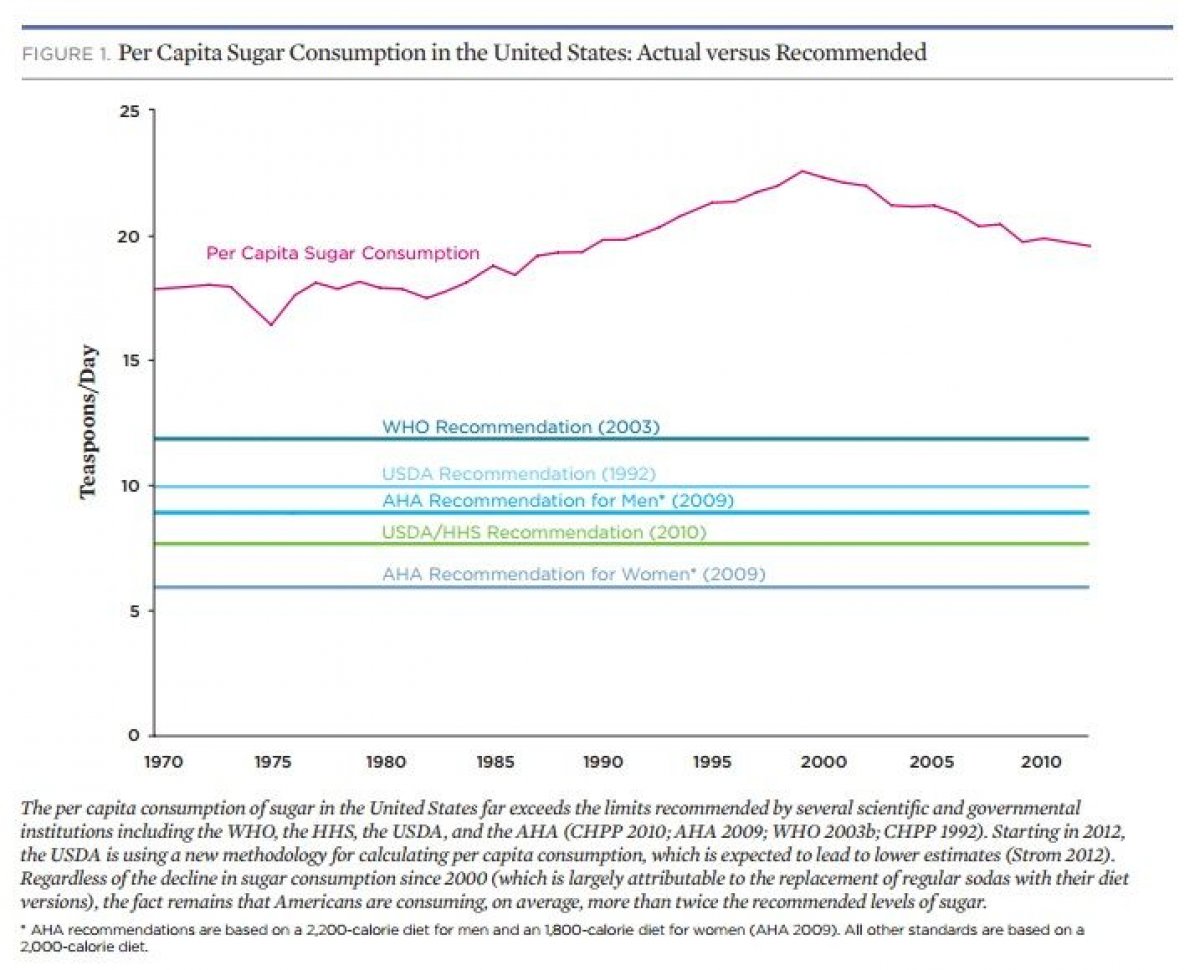
We know that consuming too much sugar can lead to heart disease, obesity, diabetes and a raft of other maladies. Yet sugar is the most popular food additive in the United States, added with abandon to nearly every processed food we eat. So why don't American food policies governing added sugar reflect that?
Enter Big Sugar. According to a new report from the Center for Science and Democracy at the Union of Concerned Scientists, industry groups representing companies that sell sweeteners, like the Sugar Association and the Corn Refiners Association (for makers of high fructose corn syrup) have poured millions of dollars into countering science that indicates negative health consequences of eating their products.
For example, when a University of Southern California study from 2013 found that the actual high fructose corn syrup content in sodas "varied significantly" from the sugar content disclosed on soda labels, the Corn Refiners Association considered paying for its own counter research. A consultant suggested that the counter research should only be published if the results aligned with their goal of disputing the USC study:
"If for any reason the results confirm [the University of Southern California study], we can just bury the data," the consultant wrote, according to the report.

In another case, the report cites a letter from 2003 from the president of the Sugar Association to the director general of the World Health Organization (WHO), which had just released a report that recommended a 10 percent intake limit on added sugars and showed that they "threaten the nutritional quality of diets." The letter suggests that the Sugar Association would persuade the U.S. Congress to deny federal funding to the WHO if they didn't pull the report.
The Sugar Association and other trade groups also wrote a letter to Health and Human Services Secretary Tommy Thompson, asking for his "personal intervention" on the matter. The threat and lobbying appeared to have worked: When WHO issued its global health strategy on diet and health the following year, there was no mention of the sugar study, according to the report.

Their efforts at downplaying scientific studies has been so effective that there is no consensus among regulating bodies as to the dangers of sugar, according to an extensive investigation of sugar PR published by Mother Jones in 2012. The trends in obesity and diabetes following the start of their major PR push appear stark:
The industry's PR campaign corresponded roughly with a significant rise in Americans' consumption of "caloric sweeteners," including table sugar (sucrose) and high-fructose corn syrup (HFCS). This increase was accompanied, in turn, by a surge in the chronic diseases increasingly linked to sugar. Since 1970, obesity rates in the United States have more than doubled, while the incidence of diabetes has more than tripled.
In the U.K., a draft report released Friday by the Scientific Advisory Committee on Nutrition urged people to cut their sugar intake by half the recommended limit, from 10 percent to 5 percent, to avoid obesity and type 2 diabetes. Added sugar was responsible for roughly 13 percent of the average American's diet between 2005 and 2010, according to the Centers for Disease Control and Prevention.
Perhaps in a few decades Americans will look back on the nation's casual overconsumption of sugar much the same way we look back on the glory days of the cigarette, when everyone smoked without a care in the world, and Big Tobacco worked in the background.

Uncommon Knowledge
Newsweek is committed to challenging conventional wisdom and finding connections in the search for common ground.
Newsweek is committed to challenging conventional wisdom and finding connections in the search for common ground.
About the writer
Zoë is a senior writer at Newsweek. She covers science, the environment, and human health. She has written for a ... Read more
To read how Newsweek uses AI as a newsroom tool, Click here.








